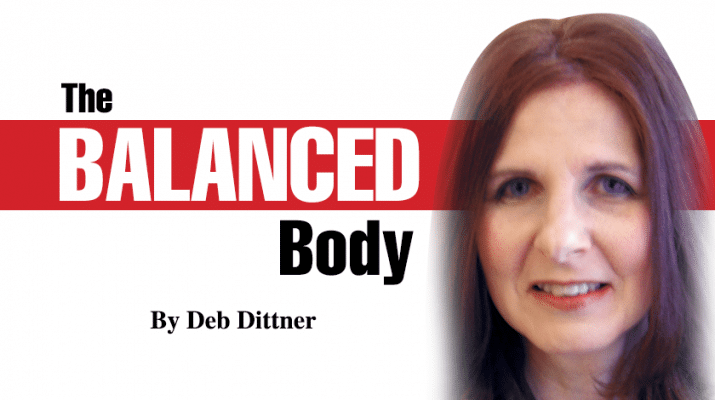Turbulent times wreak havoc on state of mental health
By Deb Dittner
 Today’s climate in terms of people’s health and welfare is in desperate need of repair.
Today’s climate in terms of people’s health and welfare is in desperate need of repair.
Mental health concerns and mental illness are at epidemic proportions as we continue month after month with various impacts of rising coronavirus cases, the volatile political front, and the rapid changes occurring in job transitions, a decrease or loss of income, and diminished social connections.
According to the National Institute of Mental Health, one in five people in the United States live with mental illness and that number may be on the rise.
Because of the speed of change that has occurred since last March, it has been difficult to fully process the damage to your mental health. This is not to be overlooked. Those with previous mental health issues will definitely be affected.
But those who have never experienced anxiety, depression, a panic disorder, mood disorder, eating disorder, obsessive-compulsive disorder, post-traumatic stress disorder and more need to take note of changes in their daily lives, including recognizing sleep and eating patterns and the effects of isolation.
Those with previous mental health issues may have sought help in the past and developed coping skills in addition to regular therapy including medication. If this is new to you, connect with your primary health care provider to make sure you receive the proper care you need now.
It is extremely important to take control over external triggers. Turn off the TV and other sources of news as that may feed into negative thoughts and feelings of doom. Go for walks outdoors, walk the dog, and don’t bring your phone with you. Simply enjoy the great outdoors, breathe deeply and soak in much-needed Vitamin D.
If meeting family, friends or colleagues via Zoom, don’t discuss the current status of the day. Talk about happy events and focus on the positive. Negativity will only breed more negativity and greater stress.
Now that the external forces are dealt with, let’s look internally and take action to decrease stressors.
Breathe easy
 Breath work has been known to decrease stress and anxiety, and can be done anytime and anywhere. Take a deep breath into the count of four, hold for the count of four and release to the count of four. I recommend this process on arising for a minimum of three rounds and again before sleep, also using it frequently and as needed throughout the day.
Breath work has been known to decrease stress and anxiety, and can be done anytime and anywhere. Take a deep breath into the count of four, hold for the count of four and release to the count of four. I recommend this process on arising for a minimum of three rounds and again before sleep, also using it frequently and as needed throughout the day.
Gratitude makes you a happier and healthier person. The expression of gratitude improves mental health, decreases anxiety, and improves sleep. Daily gratitude practices may include 5-to-15 minutes of journaling (what you are grateful for, and what you have done to provide nourishment to your body and mind), spending time in nature, be of service to others or volunteer, write a letter to someone you haven’t seen in a while, tell someone three things you appreciate about them, and dedicate time to prayer and meditation.
Physical movement is necessary for a healthy mind and body. Yoga, including chair yoga, can improve flexibility, decrease chronic pain, aid in sleep, and improve mental health. Yoga is a mind-body practice, combining breath work, movement, and mindfulness. Weekly practice between 20 and 90 minutes for a minimum of two months followed by a more frequent practice most days of the week produces greater effects.
Whole nutrient-dense foods reduce stress and anxiety. Some examples consist of fatty fish such as salmon, sardines and trout, which are high in omega-3 fatty acids; pumpkin seeds high in potassium and zinc; Brazil nuts high in selenium; dark chocolate with greater than 70% cacao, a good source of magnesium; eggs provide Vitamin D and protein, and dark green leafy vegetables such as spinach, kale and arugula provide magnesium. Herbs and spices that can help include turmeric, which decreases inflammation and oxidative stress; chamomile, which is valued for its anti-inflammatory, antibacterial and antioxidant properties, and cinnamon for its use as an anti-inflammatory.
And don’t forget water — take your weight and divide by two to equal the ounces needed daily.
These impactful ways to minimize the effects of mental health issues are effective and will improve your daily outlook on life. Receiving the appropriate care during such trying times will lead to a full and productive life.
Deborah Dittner is a family nurse practitioner and health consultant. Her mission is to transform as many individuals as possible through nutrition and lifestyle changes. For more information, check out her website at www.debdittner.com or contact her at 518-596-8565.

